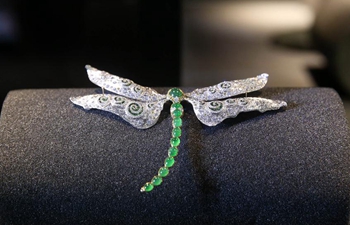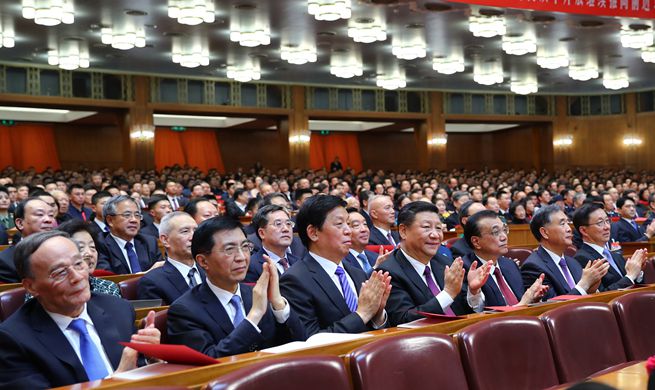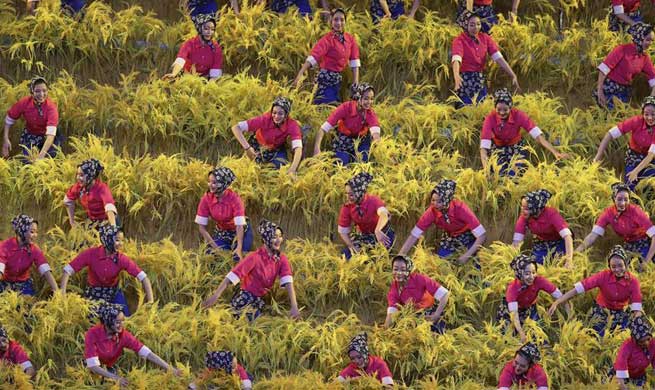WASHINGTON Dec. 15 (Xinhua) -- American, Chinese researchers have developed a new type of adhesive that can attach and painlessly detach wound dressings, skin drug delivery devices and wearable robotics.
The study published in the journal Advanced Materials this week reported the the adhesive that can strongly adhere wet materials such as hydrogel and living tissues, and be easily detached with a specific frequency of light.
Strong adhesion usually requires covalent bonds, physical interactions, or a combination of both, according to the researchers from Harvard University and China's Xi'an Jiaotong University.
"Adhesion through covalent bonds is hard to remove and adhesion through physical interactions usually requires solvents, which can be time-consuming and environmentally harmful. Our method of using light to trigger detachment is non-invasive and painless," said Gao Yang, first author of the paper and researcher at Xi'an Jiaotong University.
The adhesive uses an aqueous solution of polymer chains spread between two, non-sticky materials, like jam between two slices of bread.
The polymer chains act as a molecular suture to stitch the two materials together by forming a network with the two preexisting polymer networks, according to the study.
When exposed to ultra-violet light, however, the network of stitches dissolves, separating the two materials.
They also suggested that the ultra-violet light can be displaced with near-infrared light, a feature which could be applied to a range of new medical procedures.
"The strong adhesion can be made permanent, transient, or detachable on demand, in response to a cue," said Suo Zhigang, professor of mechanics and materials at Harvard.













